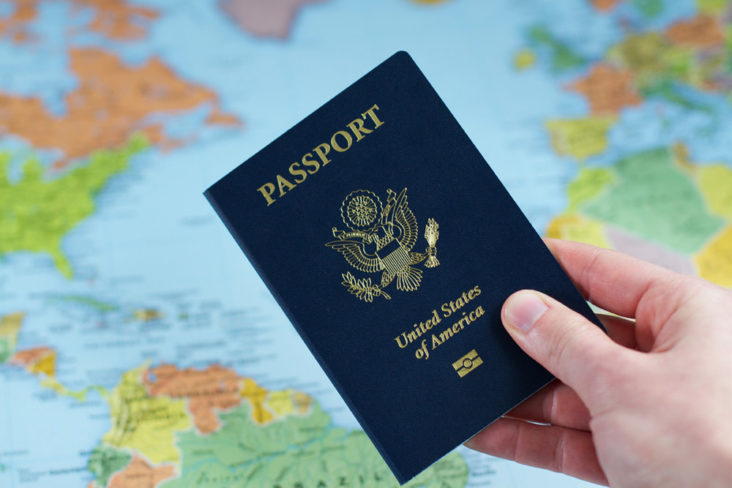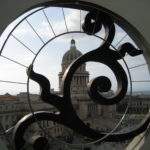Safety When Traveling- helpful tips on how to stay safe while away!

Stay Safe with our helpful tips!

This recent pandemic has made all of us think a little more carefully about staying safe in everyday life. But how about when we travel? There are many aspects to safety that one must consider when traveling overseas. As a company it is essential that we not only ensure we are providing you with the best experience, but also that you are safe while on vacation. We have compiled a list of helpful tips to use as a safety checklist when traveling abroad.
Tip #1: Visit the US Department of State Website
There is a great resource at your fingertips that will allow you to be informed about your destination before you go there. Visit the Travel.State.Gov website to learn about safety and security conditions about any country. You can check the various advisory levels between 1 and 4. Here you can also enroll in the STEP program (Smart Traveler Enrollment Program) to stay updated on up-to-date information and to be reached in case of an emergency while abroad.
Tip #2: Leave a Copy of Your Itinerary with a Loved One
It is important to leave a copy of your itinerary with information on cities you will visit, hotels you will stay in, and flight/transportation information with someone back home. If anything happens while you are away (at home or in destination) it is important so that they can easily get a hold of you. If you are traveling with a company (such as ours) make sure that you also leave this person the name and emergency number as a backup.
Tip #3: Make Copies of Your Passports/ID’s/Cards
While traveling it is possible to have things misplaced, lost or stolen. Make a copy of your passport, entry visas, other identification documents, and even your credit cards (front and back); you will save yourself a lot of time. If your passport or visa goes missing, it is easier to get a replacement at a consulate if you have that copy. And if your credit cards need to be called in as lost or stolen, having the number on the back and the credit card number will facilitate the process. Make sure these copies are in a safe place and in a separate bag (maybe your suitcase).
Tip #4: Be on the Lookout for Pickpockets
Tourists can be an easy target, even in the safest of places, as they often carry money, cameras, and other valuable items. Pickpockets can be quite sneaky, so you have to try to outsmart them. Make sure you always have your purses, bags and wallets in front of you at all times and use your hand to hold bags tight against your body. Using cross-shoulder bags are best and investing in travel-friendly ones that are harder to open are always best (you can easily find these on Amazon). Funny thing about pickpockets is you usually don’t find out it happens until after you’ve gotten back to the hotel and you are looking in your bag for something. They are very sneaky!
Tip #5: Use Credit Cards and ATM Cards
Carrying lots of cash is always risky, so I prefer to carry an ATM card and withdraw smaller amounts of money at a time. This helps to calculate your spending and ensures that if you do have a bag that is lost or stolen, you won’t end up losing much. ATM cards can easily be replaced. Additionally, use your credit card as much as possible to limit the amount of cash you carry (understanding that in some cases for small purchases cash may be your only option). Make sure you call your bank to let them know you will be traveling so they allow foreign transactions.
Tip #6: Find the Closest Embassy/Consulate
It is good to know where the closest Embassy or Consulate is located near your hotels in case you need any assistance. Always carry the number with you in case of an emergency. You can find this information by visiting this website: https://www.usembassy.gov/ and either bookmarking it or saving the information with your passport copies.
Tip #7: Check the CDC Website
Some countries may have certain health risks that you may need to be aware of, which can be helpful in understanding if you need certain vaccines or medications to ensure a safer and healthier trip. The Centers for Disease Control and Prevention Website (https://www.cdc.gov/) will provide details base on the country and may recommend avoiding certain areas of that destination or simply taking extra precautions.
Tip #8: Write Down the Emergency Number for the Destination
In the US, we all know that dialing 911 will get to us to emergency services which will dispatch the police, the ambulance and even the fire department. In other countries the number is different, and sometimes there is a different number for each one of the emergency services (one for police, one for fire, and another for medical emergencies). Make sure you learn that number before you go and keep it handy. You can find those details on the Travel.State.Gov website here: https://travel.state.gov/content/dam/students-abroad/pdfs/911_ABROAD.pdf.
Tip #9: Keep a List of Your Medications and Medical Conditions
If anything should happen that you may need medical attention, it is always best to keep a list of all of the medications you are taking and of any medical conditions that you may suffer from. This will help in getting you the right treatment if needed and will expedite the whole process. Make sure that on this list you also write down the phone number for your main doctors back at home in case they also need to be called on.
Tip #10: Purchase Travel Insurance
We strongly recommend purchasing travel insurance while you travel abroad. First of all, remember that most of health insurance plans will not cover you while overseas, while travel insurance will. But travel insurance also has many other important benefits including medical evacuation, repatriation, trip cancellation and delay insurance, lost luggage, etc. But travel insurance companies will also be able to assist in case of an emergency while overseas as they have a dedicated number that you can call 24 hours a day. The small investment is well worth it! We use Travel Guard and you can find more details here: Get a quote.
These tips are not intended to scare you from traveling overseas, but instead are meant to enhance your trip so that you travel-worry free and are ultra prepared for any mishaps when you get there. Chances are, if you prepare for it, nothing will happen! It is like carrying an umbrella all day and then it doesn’t rain! Enjoy your travels and stay safe!




